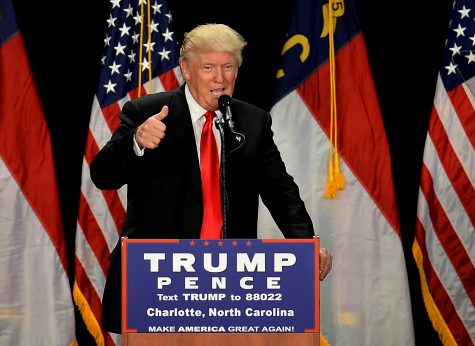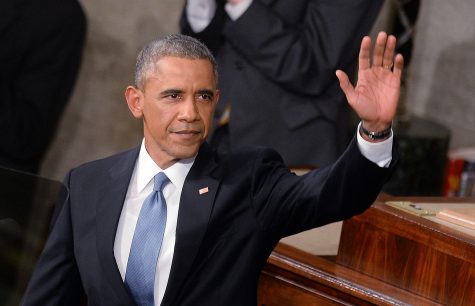The effects of social media on the 2016 presidential election
This election seems to constantly be in the press as candidates do the expected, unexpected, and are just plain newsworthy. All of these endeavors are captured and communicated through social media.
“Facebook has a big impact on the election,” because “people feel more comfortable posting on Facebook as opposed to Twitter,” Executive Assistant for Technology Integration of Curriculum Support and Development Mr. Edward Kemnitzer said. This is most likely due to the fact that they can easily comment their opinions on Facebook posts.
That’s understandable, but sophomores Caroline Bilich and Harlee Torres have different views. Both students use Twitter to get information about the candidates and feel that it’s a more influential platform.
Keeping in mind that this is the first true social media election, people can only wonder what this means for future elections and its effect on young voters. “As social media grows, more people will believe what they’re seeing on it,” Harlee said.
Both Mr. Trump and Mrs. Clinton use social media platforms such as Facebook and Twitter are utilized by to try and gain supporters. On Twitter, as of October 9, Trump had 12.3 million followers and 33,500 thousand tweets, while Clinton had 9.42 million followers and 8,758 tweets.
But does Trump having more followers mean that he’s the more ‘popular’ candidate? Not necessarily.
Mr. James Ryan, a government, history, and economics teacher, felt that the number of followers a candidate has in correlation to their popularity in the election is “hard to tell without official polls coming out,” but “It’s helping Trump, since he’s a non-politician.”
People post articles they find from unreliable sources, which spread and take their toll on the people who read it. “When you look at where it [the posts] comes from, you know it’s satire.” Mr. Kemnitzer said. “It’s important to remember that there are kids watching.” There is no denying that the candidates get a lot of publicity from their posts, negative or positive.
Students who attended the pre-debate programming at Hofstra University on September 26 gained some insight into how social media functioned in this election.
“Donald Trump has used social media which, to a great extent, carried him through this election and propelled him like no one else. The interactions that take place through the lens of social media are examined by the press, other candidates, and the people of America and in some instances give off a sense of authenticity,” senior Angelica Radomski who attended the pre debate said. There are mistakes inevitably, and become big parts of the news but that’s what makes a big part of his campaign and support.”
However, “Any press is good press,” Mr. Ryan said about controversial posts.
Throughout their presidential campaigns, both candidates have posted to expose the other. Two weeks ago, in an attempt to make Clinton look like an unfit candidate, Trump tweeted, “Wow, Crooked Hillary was duped and used by my worst Miss. U. Hillary floated her as an “angel” without checking the past which is terrible!” Trump refers to Mrs. Clinton bringing up the subject of Alicia Machado, who he previously called disgusting and accused her of having a sex tape.
Clinton is doing the same thing. After the second debate, she tweeted a link that pointed out all the ways in which he was unfit to be president.
With about two weeks left before the election, the candidates’ posting styles are not likely to change, but many voters are hoping no other election will be as social media orientated as this one.



